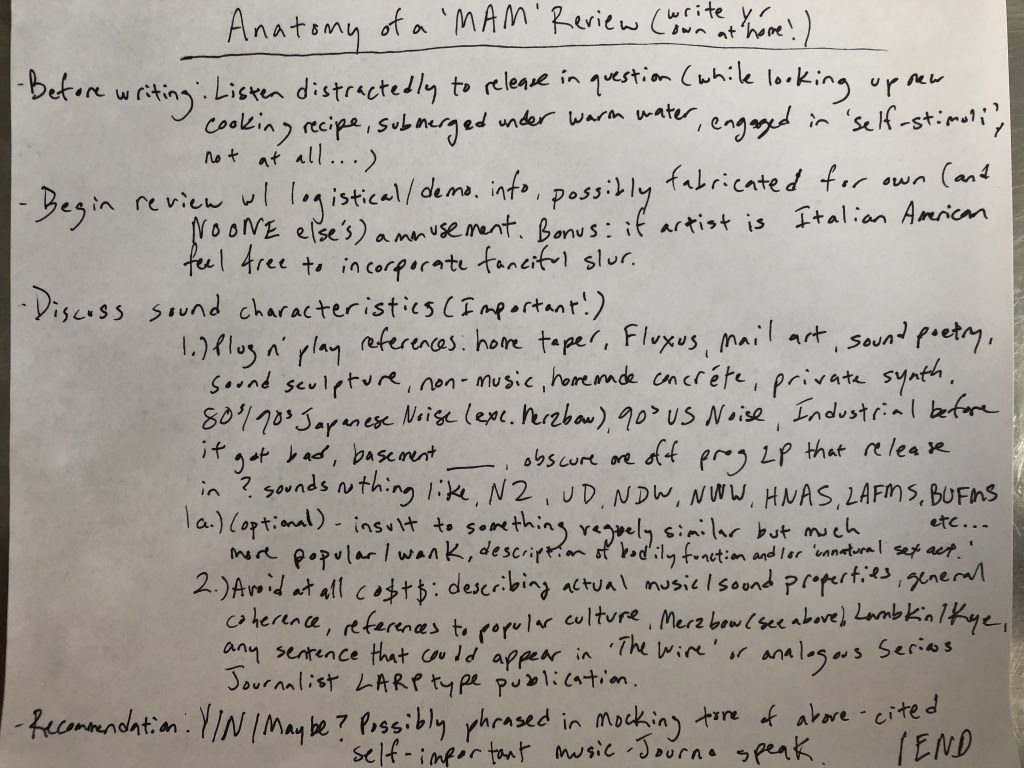
/////////////////////////////////////////////////////////////////////////////////////////////////////////////////////////////
Andres Bosshard ‘Piano Streaming: Flügel im Sinkflug über Grüneck’ ; Leif Brush ‘Stitching in Process: Windmixed Data’ (Pentiments, 2019; 2017)
These records are not all that new, so why bother writing about them? For one, they are new to me, and have so captured my ear with their Siren Song. Secondly, they compliment each other nicely; one being that rare example of a truly worthwhile archival release, an artist whose work you’d never have come across otherwise, as opposed to so much of the barrel scraping DOA cash-grab bullshit that has permeated even the furthest reaches of the sub-underground in the wake of the RSD/VYNL boom of the last decade (it would seem this bubble is about to burst given inevitable global recession/depression, but who knows?), the other a rare physical document of contemporary work by an established artist that explores similar notions of spatial relations in recorded context as the former, though realized towards radically different ends. Lastly, they both appear to still be available direct from the label, which is criminal given the quality of every aspect, from sound to presentation. It would be great if Guido could get some paper in order to make more releases like these possible.
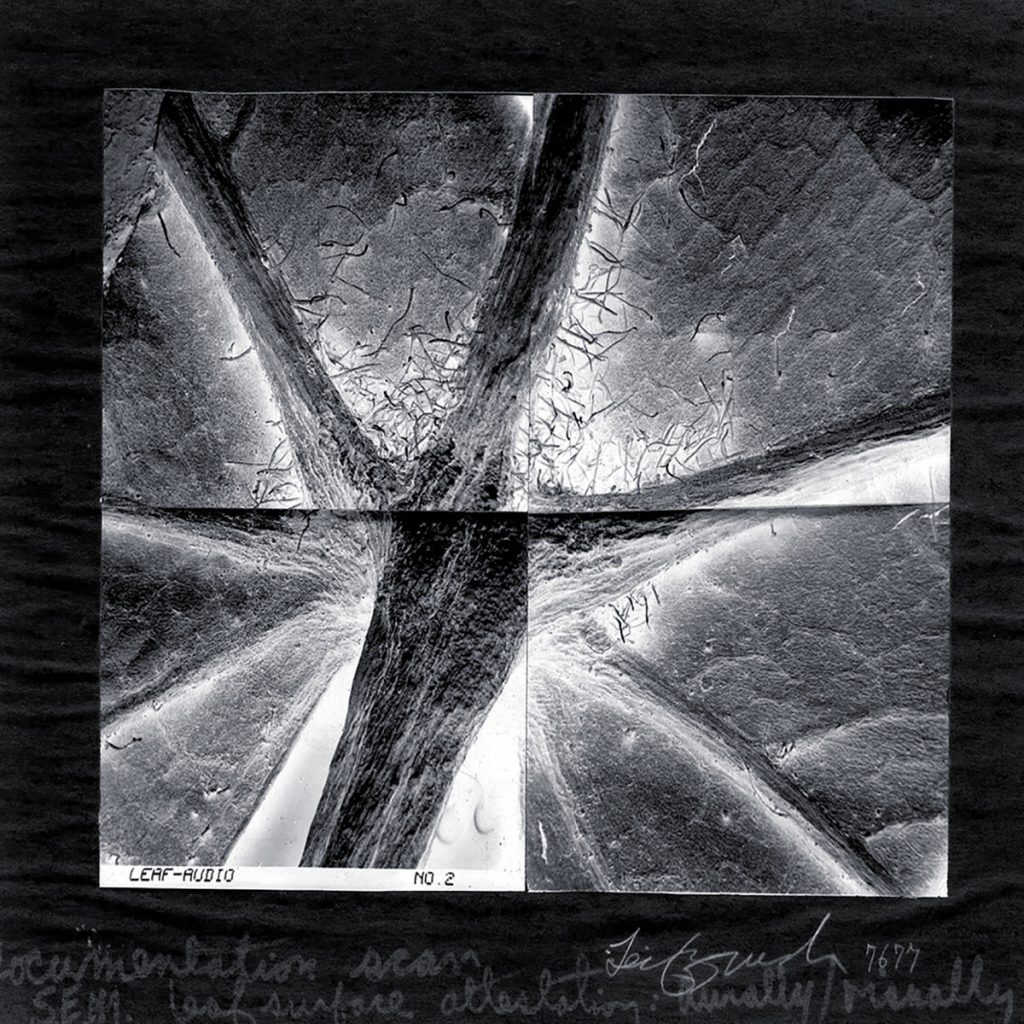
Anyway, let’s start with Leif Brush (b.1932), who I knew of from his excellent ‘Stitched Phenomena’ tape, also on Pentiments, released shortly before this massive 2xLP set (can’t recall why I got that one but missed this at the time). That tape featured one long composition, while ‘Stitching in Process’ is more piecemeal, fragments of instrumental activity occasionally spliced with interview segments, though it all flows together quite naturally (Pentiments boss Guido Gamboa does note in the liners that there was a lot of editing involved). The recordings are mostly of 70s/80s vintage and feature Brush’s arcane, homemade electronic devices that were apparently placed around forests in his area, to be played, as the title suggests, by the wind. Sometimes the wind/elements trigger synth-type sounds, sometimes acoustic instruments, and sometimes they are translated into radio signals, although the exact process remains mysterious and the results otherworldly. The bits of Brush talking about his work give insight to his intentions and influences, but do not shed much light on exactly how these sounds were generated. There is, of course, a very 60s Earthworks feel to many of the pieces, and sonic similarities to ‘Rainforest IV’ (one of my favorite Tudor records) or the environmentally activated instrumentation of Jacques Brodier, but these are loose reference points. Brush’s work inhabits it’s own peculiar landscape, one that is very personal but also quite inviting. The nicely detailed sleeve notes seem to suggest that this is the point.

Andres Bosshard’s ‘Piano Streaming…’ integrates environmental activation of an instrument into the the literal playback of the recording object itself, as it consists of an LP’s worth of electroacoustic piano experiments, that we are encouraged to listen to simultaneously with mobile speakers randomly shuffling files of “256 ancillary satellite recordings” housed on an accompanying USB drive. These multiple sources of audio create a dynamic listening environment that is infinitely variable, a sonic sculpture (or “garden” as Bosshard calls it) of sorts. I will be honest, the first few times thru I listened only to the LP (which is pretty good on its own), not noticing the queer business card shaped USB drive in the sleeve, then had to look up what the fuck I was supposed to do with it when I did (conveniently laid out on the back sleeve liner notes). Naturally this all seemed a bit gimmicky at first, but then I thought of John Duncan’s ‘Music – You Finish’, in which raw material was provided on a cassette with instructions for the recipient to add their own sounds and send back this ‘finished’ product to the artist. I always loved this idea so I tried to suspend my prejudice against both having to do anything while listening to a recording, as well as non-traditional formats in general, and for this I was rewarded. Bosshard recommends multiple speakers for the satellite recordings, although I only had one on hand; even with this relatively fixed set of variables, the resultant interweaving of sounds was fascinating. I wandered around the room, got a tennis ball from my dog’s toy basket to bounce (also recommended in the liners), played with my dog in another room etc., my perception focusing in an out as if adjusting contrast settings on an old TV. At times the LP and satellite recordings (which are also all sparse piano/room sounds, lasting from a few minutes to seconds in length) would nearly sync up, at times they were totally divergent, and quite often only one was audible at all. Obviously these sorts of questions about how we experience the temporal event of recorded sound have been a central theme of much Sound Art for a long time, and I have my hang ups with regard to explorations of such that rely on what could be called, ungenerously, ‘clever’ novelties; all this aside Bosshard establishes a fully engrossing atmosphere, a way of breaking up the linearity of sound towards something more open, malleable, and really just enjoyable to hear. It reminds me, in spirit, of Juan Hidalgo’s metaphysical spoken word work, ‘Uva Voz (un etcétera)’, the circumstances of which he wrote “…recorded by Walter Marchetti, who also added some music by opening the windows…”.
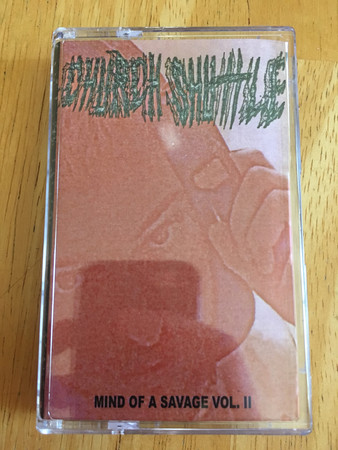
Church Shuttle ‘Mind of a Savage Vol. II’ (Amerikan Erektors, 2020)
Church Shuttle is one of the more prolific monikers of Down River Renaissance Mane Christopher Alan Durham, likely known to readers of this payola racket/tax write-off (sorry, underground music review column) via his involvement in Roachclip, The Bibs, Gauze & Ivory Band, DJ Bando, All Gone records ‘n tapes etc. The scope of Chris’s recorded output over the last decade, in both style and substance, rivals that of many small island nations, and thus attempting to summarize it in tape review format would be useless; go ye and seek thine fruits. Which brings us to this recent CS on the new Amerikan Erektors imprint, ‘Mind of a Savage Vol. II”, presumably the follow up to ‘MoaS’ Vol. I released via Nostilevo off-shoot A.C.T.I.O.N. in 2015 (and reissued by No Rent 2018). I believe this was one of first Church Shuttle tapes I ever heard, and recall being immediately beguiled by its low-rent power eletronixthh cum Rodney Dangerfield charm. This guiding principle, a sort of grinding post-Industrial soundscape, leavened with dejected dole queue humor, has been a constant throughout the project’s existence, although it has mutated into many interesting strains over the years. Whereas our first stroll thru the ‘Mind of a Savage’ was littered with emphatic suggestions to “Take (y)our son to the game and buy him some chicken!” and the assurance that the protagonist’s “life is a piece of shit”, such decrees are, by now, understood at point of entrance. The result is a more hallucinatory affair, with abstracted vocal phrases hovering around a morass of home-rigged electronics, taped down synth keys and the death throes of whatever cheap equipment was found at the thrift (or abandoned on the side of the road) the day of recording. In essence, the Detroit Basement Blues, full proof. Sometime soon I will open the bar up early and bust out all my CS/related tapes for a marathon run. That will be a fine day.
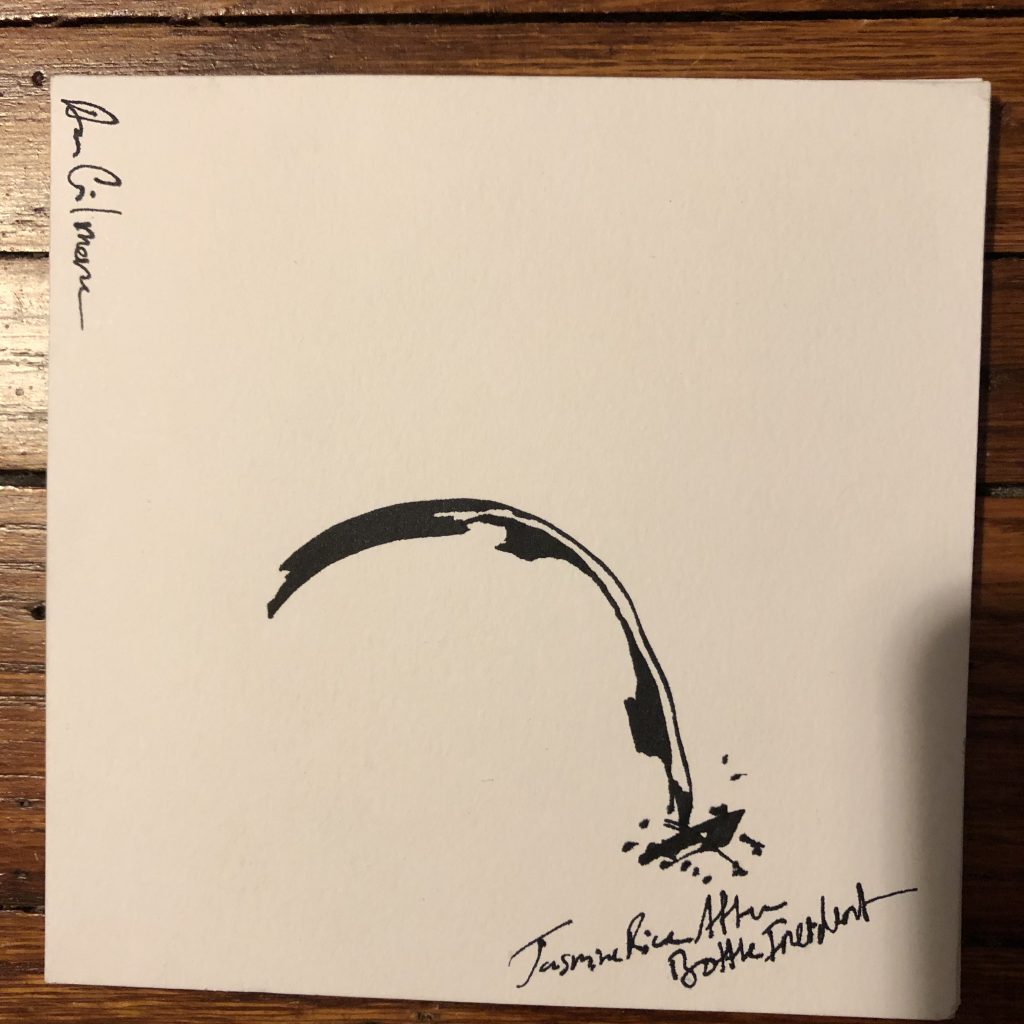
Dan Gilmore ‘Jasmine Rice After Bottle Incident’ (no label, 2020)
Our more fiscally-keen readers likely know Dan Gilmore (AKA Henry Chicago) as the fresh-faced ’30 Under 30′ CEO of the Careful Catalog global media empire. In between the champagne wishes and caviar dreams, Gilmore has long fucked around with strange sound for his own amusement, and recently decided to make some of these experiments public. For this we rejoice! I’m told from a trusted source that ‘Jasmine Rice After Bottle Incident’ details a failed attempt to construct a homemade underwater recording device, and the mayhem that followed. But let us wipe this intriguing backstory from our minds and start anew; What does ‘Jasmine Rice…’ actually sound like? There is certainly a lot of close mic’d activity, rustling, glass ware, animals, distant electronic tones rising and falling…nothing particularly musical, but not exactly at odds with music either. Post-noise is a term that’s been thrown around for years, often vaguely in my estimation, but if we take Noise, as defined by many of its pioneers (Rupenus, GX, Mikawa etc.) to be recorded sound that is wholly antagonistic to the notion and constraints of musicality, then perhaps post-Noise is an ensuing sense of indifference to it, an audible disposition of alienation and malaise towards the endless repetition of these decade’s old debates, ossified thru steadily declining social and material conditions. Taking off my monocle for a second, I will say that this CDR is totally fuckin’ sick and has a str8 up Harsh Reality/Banned/Xkurzhen/20city vibe, absolutely fried/wasted beyond belief, real head shit to be sure. ‘Jasmine Rice After Bottle Incident’ is quite limited and may be out of stock already, BUT if you are very nice to Dan and buy everything from his excellent Careful Catalog then perhaps he can be persuaded to make more. Fuck know’s it’s the kinda thing this shit world could use right now.
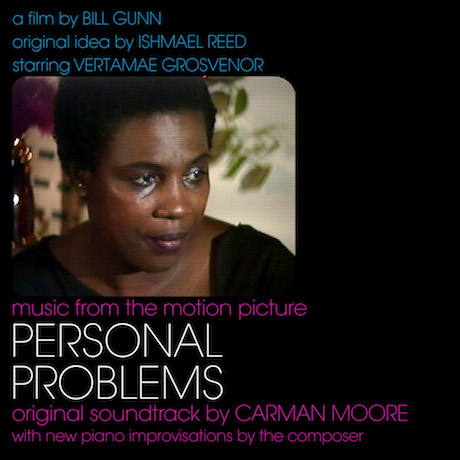
Carman Moore ‘Personal Problems’ (Reading Group, 2020)
If you spend much time immersed in any sort of ‘subculture’, artistic or otherwise, you will quickly find that few things come truly unexpected. What’s that now? You’ve stuck a rotating drill up your piss hole and recorded its findings? You lived a year with wild boar, studied their habit/custom and have committed their grunts to tape? You’ve gone and saved yet another ‘L0$t Fl0oXu$ M@$terPi3cE’ from a box in its graying maker’s attic, only to doom it to a fate worse than death (played twice then filed/forgotten in neckbeard collections far and wide)? I’m sorry my good fellow, but I’ve heard that song before. I was not, however, expecting the soundtrack for a shelved 1980 “meta-soap opera” featuring Sun Ra and Nina Simone-affiliates to end up on my doorstep, but here we are, and for once I’m not complaining. This handsome LP edition on Derek Baron’s Reading Group imprint compiles the original film score as it was recorded four decade’s ago, as well as more recent piano improvisations based around themes from the score. As suggested above, I’m completely unfamiliar with Moore’s work, and probably lack the language to adequately describe the contents of this record, but such ignorance has never stopped me before: Moore’s compositions inhabit a weird nether-region between contemporary classical and jazz, one that immediately made me reach for Ornette Coleman’s very odd ‘Skies of America’. Looking at the presser it appears Coleman was a big fan, going so far as to call Moore the greatest composer in the world, so it seems I was on the right track. ‘Personal Problems’ also recalls some aspects of the less zany end of chamber RIO, such as ZNR’s second, vastly underrated ‘Traité De Mécanique Populaire’ LP, if the scenery were shifted from a late 19th century Parisian mustache-waxing party to a smoky, after hours Harlem club. The all piano B-side also reminds me of the pair of elegant Karla Borecky solo records released on Recital over the past few years. Although much of this is presumably meant as background music it does not have the anonymous library feel of many OSTs (this is a good thing to me, as I’ve never quite gotten the collector hype over much library music). What more is there to say? ‘Personal Problems’ is one of the most welcome surprises I’ve come across in sometime.
/////////////////////////////////////////////////////////////////////////////////////////////////////////////////////////////
Do you record marginal music to keep yourself from going insane? Would you like for it to be reviewed? If so, e-mail crisisoftaste [AT] gmail.com. Only physical releases will be considered, and reviewer reserves the right to discard upon unsatisfactory listening experience, but if what you send is good then that shouldn’t be a problem.
 Follow
Follow

